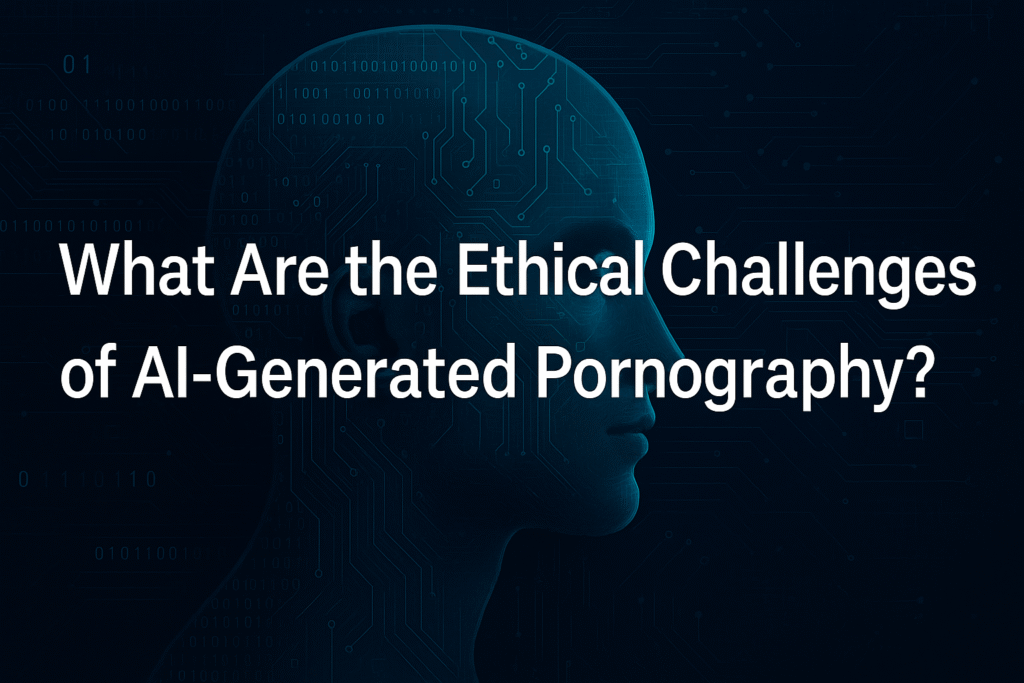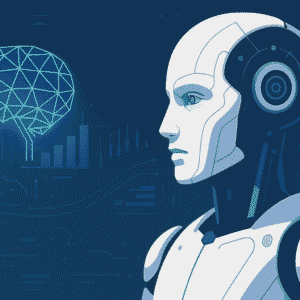
Artificial Intelligence (AI) has rapidly transformed many sectors, from healthcare to entertainment. One of the more controversial frontiers where AI technology is making a significant impact is adult content—specifically, AI-generated pornography. While the technology opens new creative possibilities and personalized experiences, it also raises complex ethical challenges that society must address. This article explores these challenges, focusing on consent, privacy, legality, and the broader social implications of AI-generated porn.
What Is AI-Generated Pornography?
AI-generated pornography includes deepfake videos, computer-generated imagery (CGI), and synthetic media created using machine learning algorithms. These AI tools can produce hyper-realistic adult content featuring celebrities or ordinary individuals without their participation or consent. The technology can also create entirely fictional characters and scenarios, blurring the lines between reality and fabrication.
Ethical Challenges in AI-Generated Pornography
Consent and Personal Autonomy
One of the most critical ethical concerns is the issue of consent. Traditional adult content involves consenting adults who agree to participate in the creation and distribution of their images and videos. In contrast, AI-generated pornography often uses real people’s faces or bodies without permission, violating their autonomy and dignity. Deepfake porn has particularly been associated with non-consensual content involving celebrities or private individuals, leading to emotional trauma and reputational damage.
Privacy Violations
AI pornography can lead to significant breaches of privacy. The ability to digitally replicate someone’s likeness means that anyone’s image can be manipulated and distributed online, often without their knowledge. This not only invades personal privacy but can also cause lasting harm to individuals’ personal and professional lives.
Legal and Regulatory Gaps
The rapid advancement of AI-generated porn has outpaced the development of laws and regulations. Many jurisdictions lack clear guidelines on how to handle deepfake content, ownership rights, and distribution control. This legal gray area creates challenges in prosecuting offenders and protecting victims, leading to potential misuse and exploitation.
The Impact on Society and Relationships
AI porn may affect societal attitudes toward sex, relationships, and consent. The availability of hyper-realistic synthetic content can distort expectations of intimacy and body image. It can also contribute to objectification and desensitization, potentially fostering unhealthy perceptions of human interaction.
Potential for Exploitation and Abuse
Beyond consent and privacy, AI-generated porn could be exploited for blackmail, harassment, and manipulation. The technology might be weaponized in revenge porn cases or used to harass public figures, amplifying existing social harms through digital means.
Addressing the Ethical Challenges
Education and Awareness
Raising public awareness about the realities and risks of AI-generated porn is essential. Users should understand the implications of consuming and sharing such content.
Stronger Legal Frameworks
Governments and regulatory bodies need to develop clear, enforceable laws specifically targeting AI-generated explicit content. This includes defining consent, establishing penalties for misuse, and protecting individuals’ rights.
Technology Solutions
AI can also be used to fight AI porn. Developers are working on detection tools that can identify deepfake content and help platforms remove non-consensual or illegal media promptly.
Ethical AI Development
Developers and companies creating AI tools must adopt ethical guidelines that prevent misuse. This includes restricting access, implementing watermarking or digital signatures, and ensuring responsible usage.
Conclusion
AI-generated pornography represents a technological breakthrough with vast implications. However, it also presents serious ethical challenges related to consent, privacy, legality, and societal impact. Addressing these concerns requires coordinated efforts across technology, law, and education. As AI continues to evolve, balancing innovation with respect for human dignity and rights will be crucial for navigating this complex terrain.




